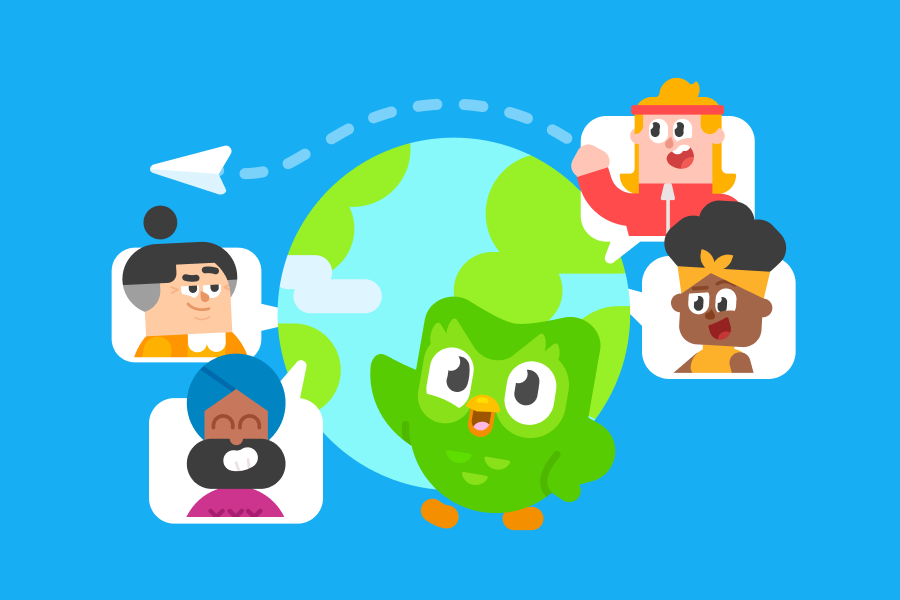Portuguese is growing in popularity among language learners, and it's no surprise: Portuguese is spoken by 270 million people worldwide, and it's the main language of popular travel destinations like Brazil and Portugal.
But Portuguese is used in more places than that! Its history as the language of seafaring explorers brought it to all corners of the world. Here's where you'll find it!
Portuguese in the Americas
Brazil is the flagship of the Portuguese language. As one of the world's largest countries, it's home to around 218 million Portuguese speakers.
But Portuguese can also be found elsewhere in the Americas! Fueled by a lively diaspora of Portuguese, Brazilian, Angolan, and Cape Verdean people, Portuguese is a minority language in Uruguay, Venezuela, Paraguay, Guyana, and Bolivia.
In the United States and Canada, about 2.3 million people speak Portuguese. And one of the official languages of Bonaire, Aruba, and Curacao is Papiamento—this creole language developed from a mix of African languages, Dutch, and very possibly Portuguese!
Portuguese in Africa
About 60 million Africans speak Portuguese, making Africa the continent with the second-most Portuguese speakers (first being the Americas!). Portuguese is an official language in Angola, Mozambique, Guinea-Bissau, Equatorial Guinea, Cape Verde, and São Tomé and Príncipe. It's also spoken in South Africa, Namibia, Congo, Zambia, Senegal, and Eswatini.
There are also creole languages in Africa, including several that developed from contact between Portuguese and local languages. Two of these languages are Kriolu in Cape Verde and Guinensi in Guinea-Bissau. Can you see the similarities in some of these common expressions?
| Brazilian and European Portuguese | Kriolu | Guinensi | English |
|---|---|---|---|
| Bom dia | Bon dia | Bon dia | Good morning (day) |
| Como estás? / Como vai? | Módi ki bu sta? | Kuma ku bu na bai? | How are you? |
| Muito bom | Mutu bon | I bon dimás | Very good |
| Eu estou bem | N sta dretu | Ami n'stá bon | I'm fine |
| Tem um bom dia / Tenha um bom dia | Pasa un bon dia | Pasa un bon dia | Have a good day |
| Até logo / Vejo você depois | N ta odjâ-u dipôs | N'ta odjau dipus | See you later |
| Comida | Kumida | Bianda / Kumida | Food |
| Pão | Pon | Pon | Bread |
Portuguese in Asia
In Asia, Portuguese has different statuses depending on the country and region. In the former Portuguese colonies of East Timor and Macau, it is a co-official language (alongside Tetum in East Timor and Cantonese in Macau). Since Portuguese has been present in these communities for centuries, it's also common to hear code-switching between Portuguese and local languages. Portuguese has also influenced creole languages here, too, including Patuá in Macau.
Malaysia and Singapore are homes to the Gente Kristang, a community of Eurasians of Portuguese descent who speak Papia Kristang (also called Língua Cristã), a creole language that was influenced by Portuguese. Kristang cuisine, architecture, and folklore also reflect their Lusophone (Portuguese) heritage!
Portuguese also has a presence in South Asia, in Sri Lanka and India. There are Portuguese-influenced creole languages in Sri Lanka (Sri Lankan Portuguese Creole) and in Daman and Diu in India (Língua da Casa). The Portuguese colonized Goa, a state in India, for centuries, and today the state's official language, Konkani, has incorporated many Portuguese words. The influence of Portuguese has grown recently, with attempts to reintroduce it as a co-official language in these parts of India, where it's still officially taught in many schools.
Japan is home to the largest Portuguese-speaking community in Asia, with 300,000 Portuguese speakers! The history of Japan and Portuguese is long, and you can find the influence of Portuguese on Japanese vocabulary:
- コップ (koppu): drinking glass, from Portuguese copo
- シュラスコ (shurasuko): barbecue, from Portuguese churrasco
- パン (pan): bread, from Portuguese pão
Portuguese in Europe
The birthplace of Portuguese has lost ground in its number of speakers, but the spread of the language is not least surprising. 10 million people speak Portuguese in Portugal, but experts estimate 15 million speakers throughout Europe. So where are the others?
After Portugal, the largest groups of Portuguese speakers are in France, followed by Switzerland, the U.K., Germany, Spain, and even some smaller communities in Ireland and the Netherlands.
Perhaps more interestingly, about 11% of Andorra residents speak Portuguese, and estimates place this percentage between 18-25% in Luxembourg, making it the world's largest foreign diaspora in percentage.
No matter where you travel, pack Portuguese!
Learning Portuguese can take you on a global adventure—and not just to the shores of Portugal or carnaval in Brazil. Portuguese is the language of many peoples in many lands, and they're ready to welcome another speaker of the worldwide língua portuguesa!



